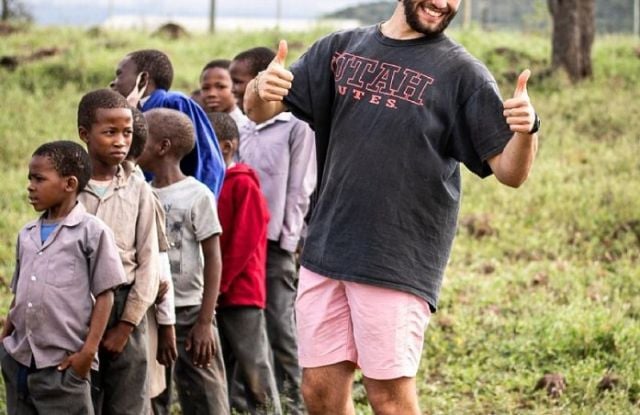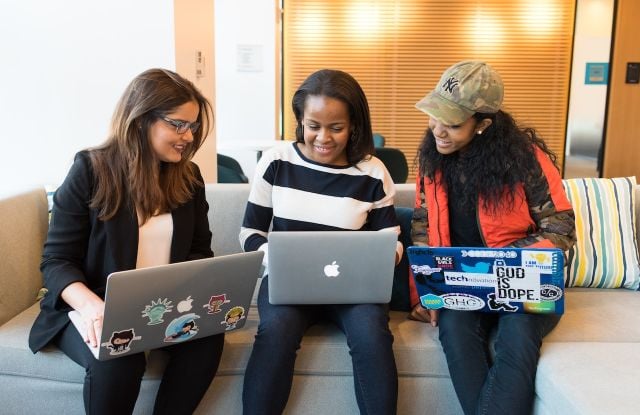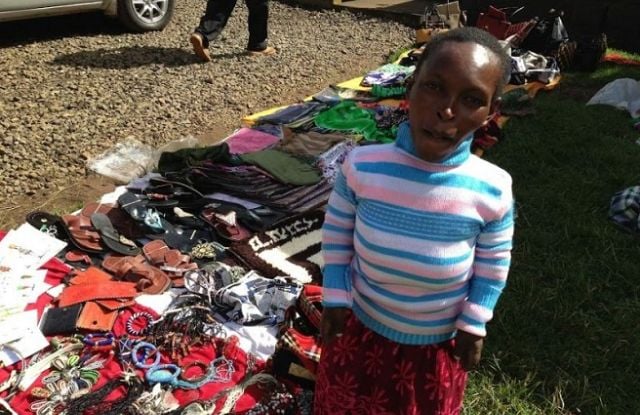| Seth Barnes | Radical Living | 3 Comments on Gap Year: Best Thing For Gen Z
Gap Year: Best Thing For Gen Z

Parents are waking up to the fact that their children need a gap year. Our secular educational system effectively disciples young people in disbelief. In contrast, a gap year experience gives them an opportunity to wrestle with their faith in the real world. Wise parents will weigh the relative risks and consider their options. I loved this article from Adrienne Wichard-Edds, the mom of a Millennial writing in the Washington Post. Here’s an excerpt.
Want independent, well-adjusted kids who succeed in college, career and beyond? Parke Muth, a veteran college admissions consultant who spent nearly three decades in the University of Virginia’s admissions office, makes the argument that the best investment you can make in your kid’s college education might be to delay that education.
Muth, who has worked with thousands of highly competitive high school students from around the globe, often encourages kids to take a gap year—a year off between high school and college—to travel, work, learn a new language or pursue independent study.
This concept has its roots in Europe (particularly England) but has been steadily growing in popularity in the U.S.; and while there’s not a lot of hard data on how many students choose to take a gap year annually, organizations such as the American Gap Association cite private studies and student feedback to report on the rising trend—as well as on the myriad benefits—of taking a structured year off before entering the high-stakes world of higher education.
But isn’t taking a gap year just a form of procrastination? A slacker’s path out of studying? Muth waves off my perception as outdated, explaining that it’s often quite the opposite. (He does say, however, that announcing that you’ll be taking a gap year can sometimes come off as being overly privileged, “like you can do anything you want and get your parents to pay for it.” So he suggests that kids leave any mention of it off their college applications and then request to defer their enrollment once they’ve been accepted.) Muth highlights instead how a gap year can address the problem plaguing so many colleges today where kids are unable to manage themselves, and parents are unable to let them.
[How helicopter parents are ruining college kids]
“Parents have been chauffeurs and secretaries for their kids all their lives, so kids tend to have a rough adjustment period when they head off to college,” he says. “But taking a gap year is the antidote to helicopter parenting.”
“It’s an investment in the whole person,” Muth says, one that allows kids to develop the maturity, independence and self-reliance necessary to make the most of a college education. He speaks to the significant growth opportunities that a gap year can provide as well as the common freshman pitfalls it can help students sidestep. It can also give students the opportunity to take a step back to focus on their goals, leading to a stronger sense of direction once they’re back in the classroom.
Well, when you put it like that! Isn’t this exactly what we’re striving to give our kids—a sense of their place in the world and how to appreciate it and make the most of it?
“A gap year experience can also expose kids to the realities of the world that awaits them on the other side of college,” Muth continues, turning them into young adults who are more inclined to take their education seriously rather than as a “prepaid, four-year playland.” Plus, it gives kids a break from the intensive work—and parenting—that goes into completing high school and getting into college, making it less likely that kids will bottom out during their first year away from home.
The cost of supporting a student who’s taking a gap year is often significantly less, and when those students enter college the following year (and 90 percent do, according to a study conducted by Karl Haigler, author ofThe Gap-Year Advantage: Helping Your Child Benefit from Time Off Before or During College) they often do so “much hungrier to succeed and get off the treadmill,” as Muth puts it.
“Grace was 18 years old, traveling in Africa by herself,” Muth recounts. “She went to board a plane that would take her to volunteer at Mother Teresa’s in India, and they wouldn’t let her on the plane because they said her inoculations weren’t up to date. So there she was, stranded in the middle of Africa with no one to take care of her or tell her what to do. She had to figure it out all on her own. That’s a tremendous skill to have,” says the proud dad.
This all sounds like a magical learning experience, how a little loosening up of the apron strings can bring your child all the important life skills that you’ve been wishing for them. But when I try to visualize this for my own children—who are about to graduate from 4th and 6th grades and who still occasionally return from school without their lunchboxes—it’s nearly impossible for me to fast-forward my parenting to the point where I could conceive of sending either one of them off to a different continent by themselves. Don’t get me wrong: I’d love to raise kids who don’t ditch classes, who possess both the confidence and clear internal compass that points them decidedly in the right direction, but I can’t mentally bridge the gap between now, where they still need to be reminded to fold their laundry, and the scenario where they successfully figure out how to get themselves vaccinated in Africa.
“Try sending them to sleepaway camp,” Muth advises when I voice this concern, acknowledging that there are small ways we can begin to empower our kids well before taking a gap year is even a possibility. “Send them off to live in a cabin with other people, hike out in the woods and learn how to make things work on their own. Sleepaway camp is where they form bonds, figure things out and find other like-minded souls. Parents think that if they send their kids to camp at Harvard, it’s going to look good on their transcript, but it’s not. Sometimes it’s better just to have a truly transformative experience.”
So that’s where I stand, at the beginning of summer, Muth’s advice ringing in my ears as I try not to helicopter-parent my two boys into helplessness. I’ve spent the past year allowing them to fail gently in order to learn to rely on themselves, and this summer I’m giving both of them the freedom to try sleepaway camp—my younger one for the first time, my older one at a camp that includes things like white water rafting and backcountry camping, activities completely outside my comfort zone.
But while I’m obsessively reminding them to check for ticks, I’ll remind myself that these are the small costs of building stronger, more resilient, more self-directed and independent citizens of the world. Maybe it’s time to recalibrate my mama-bear instincts so that all the protecting I think I’m doing right now doesn’t undo their ability to protect themselves down the road.
A couple of gap year alternatives I recommend you check out here and here.



Thanks for this article Seth. Our son Samuel went to Hillsong School of Worship after HS and it was perfect for him. Years later medical school now awaits and he is doing a “gap year” in a biology lab prior. Love your posts. Grateful for you and your family.
Thanks, Butch. I always appreciate your encouragement!
Thanks Seth. I took a year off after graduating from high school and worked in a bank. It gave me a different perspective when I went to uni…I wasn’t caught up in the freedom to party that affected so many of classmates. I encouraged my daughters to take a gap year but both were very sure of what they wanted to do as careers and had been in part time work for a couple of years outside of school. One now works as a nurse in intensive care and the other is working overseas with OM as a volunteer.